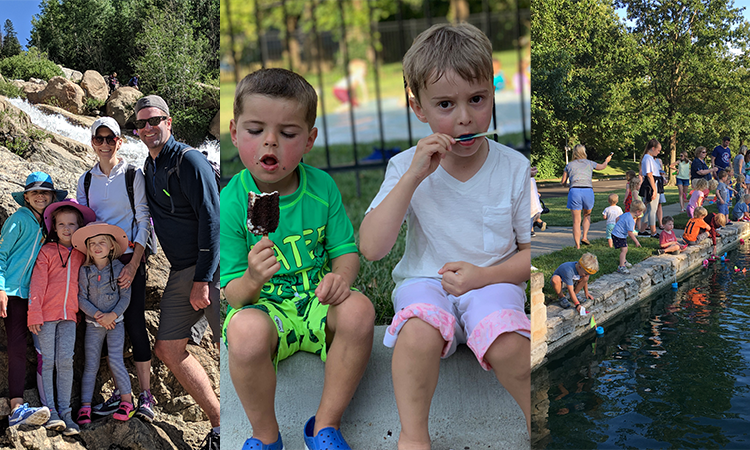Here is a very helpful guide from Rev. Catherine Stark-Corn, Minister to Children and Families at Country Club Christian Church, for parents on how to speak to your children about the terrible tragedy in Connecticut. Please feel free to share.
Children need a foundation of security and safety. Tragic events, particularly those involving loss of innocent lives can shake that foundation, especially when a national disaster is so sudden and unexpected. Children are curious to know what has occurred. Here are a few tips to guide you as you work with your child:
Be honest – depending on their age you can share what you know. Young children will probably not know much about it and do not need to – unless they ask and then be very brief and reassuring. School age children need to hear appropriate information from caring adults in simple, direct language. If they ask questions of why – it is fine to say you do not know. Trying to offer information you do not have or know is not necessary. Avoid having the television or computer on with coverage of the event when children are watching.
Let them express openly what they are feeling – they may dwell on what happened or they may not register the tragedy at the level you might expect. Let your child express whatever emotion they may have – fear, distress, depression or perhaps a sense of distance from the tragedy. Listen carefully and let them tell you what they know and feel. Let them know their feelings make sense and that it’s ok to feel whatever they are feeling.
Accept their emotions and reactions – do not try and move past what they are feeling, it is ok for them to feel sad or scared for a bit. You can reassure them with hugs and holding them. A parents touch and warmth and comfort can be the best reassurance. You can ask them questions about what they are feeling.
Realize there may be a delay – your child may not react in an indirect way to the situation or after some time has passed. They may become afraid of the dark or some similar fear may crop up. Continue to reassure them and be patient but keep daily life as normal as possible. Routine creates a sense of comfort and predictability.
Find a symbolic action to share – if it feels appropriate you may choose to offer prayer for the families touched by the tragedy, you may light a candle to remember people who have been impacted by the tragedy or some similar action that helps the family express their sadness.
Comfort them – your child may seek to be closer to you in the time surrounding the tragedy. Be available and open to them. Do try and carry on with normal activities but realize concerns and emotions may come at varying times and places.
Engage your faith – let your child know what has happened is so hurtful and God must be so sad. God does not want people to harm and hurt one another. God is love and wants all of us to live in that love. Let your child know God is with us and knows and feels our pain and sadness. Suggest your child offer a pray telling God how you feel.





